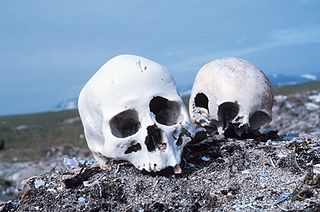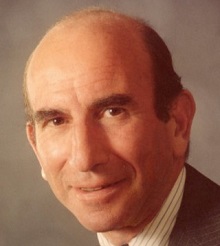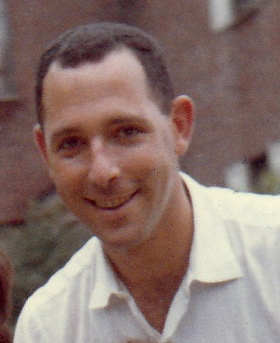Related Research Articles

Forensic pathology is pathology that focuses on determining the cause of death by examining a corpse. A post mortem examination is performed by a medical examiner or forensic pathologist, usually during the investigation of criminal law cases and civil law cases in some jurisdictions. Coroners and medical examiners are also frequently asked to confirm the identity of remains.

The Johns Hopkins Hospital (JHH) is the teaching hospital and biomedical research facility of the Johns Hopkins School of Medicine, located in Baltimore, Maryland, U.S. It was founded in 1889 using money from a bequest of over $7 million by city merchant, banker/financier, civic leader and philanthropist Johns Hopkins (1795–1873). Johns Hopkins Hospital and its School of Medicine are considered to be the founding institutions of modern American medicine and the birthplace of numerous famous medical traditions including rounds, residents and house staff. Many medical specialties were formed at the hospital including neurosurgery, by Harvey Cushing and Walter Dandy; cardiac surgery by Alfred Blalock; and child psychiatry, by Leo Kanner. Attached to the hospital is the Johns Hopkins Children’s Center which serves infants, children, teens, and young adults aged 0–21.

Sidney Farber was an American pediatric pathologist. He is regarded as the father of modern chemotherapy for his work using folic acid antagonists to combat leukemia, which led to the development of other chemotherapeutic agents against other malignancies. Farber was also active in cancer research advocacy and fundraising, most notably through his establishment of the Jimmy Fund, a foundation dedicated to pediatric research in childhood cancers. The Dana–Farber Cancer Institute is named after him.

The Johns Hopkins University School of Medicine (JHUSOM) is the medical school of Johns Hopkins University, a private research university in Baltimore, Maryland. Founded in 1893, the School of Medicine shares a campus with the Johns Hopkins Hospital and Johns Hopkins Children's Center, established in 1889. It has consistently ranked among the top medical schools in the United States in terms of the number/amount of research grants/funding awarded by the National Institutes of Health, among other measures.
The University of Maryland School of Medicine, located in Baltimore City, Maryland, U.S., is the medical school of the University of Maryland, Baltimore and is affiliated with the University of Maryland Medical Center and Medical System. Established in 1807 as the College of Medicine of Maryland, it is the first public and the fifth oldest medical school in the United States. UMB SOM's campus includes Davidge Hall, which was built in 1812, and is the oldest building in continuous use for medical education in the Northern Hemisphere.

William Henry Welch was an American physician, pathologist, bacteriologist, and medical-school administrator. He was one of the "Big Four" founding professors at the Johns Hopkins Hospital. He was the first dean of the Johns Hopkins School of Medicine and was also the founder of the Johns Hopkins School of Hygiene and Public Health, the first school of public health in the country. Welch was more known for his cogent summations of current scientific work, than his own scientific research. The Johns Hopkins medical school library is also named after Welch. In his lifetime, he was called the "Dean of American Medicine" and received various awards and honors throughout his lifetime and posthumously.
Robert James Gorlin was an oral pathologist, human geneticist and academic at the University of Minnesota School of Dentistry.
Vanderbilt University School of Medicine is a graduate medical school of Vanderbilt University located in Nashville, Tennessee. Located in the Vanderbilt University Medical Center on the southeastern side of the Vanderbilt University campus, the School of Medicine claims several Nobel laureates in the field of medicine. Through the Vanderbilt Health Affiliated Network, VUSM is affiliated with over 60 hospitals and 5,000 clinicians across Tennessee and five neighboring states, managing more than 2 million patient visits each year. It is considered one of the largest academic medical centers in the United States and is the primary resource for specialty and primary care in hundreds of adult and pediatric specialties for patients throughout the Mid-South.

Eugene Lindsay Opie was an American physician and pathologist who conducted research on the causes, transmission, and diagnosis of tuberculosis and on immunization against the disease. He served as professor of pathology at several U.S. medical schools and as Dean of the Washington University School of Medicine.

Melvin Malcolm Grumbach was an American pediatrician and academic who specialized in pediatric endocrinology. Called Edward B. Shaw Distinguished Professor of Pediatrics, Emeritus at the University of California, San Francisco School of Medicine, Grumbach was noted for his research and writing on the effect of hormones and the central nervous system on growth and puberty and their disorders; the function of the human sex chromosomes; and disorders of sexual development.
Catherine D. DeAngelis is the first woman and the first pediatrician to become editor of the Journal of the American Medical Association (JAMA). She has also edited several additional medical journals. Before assuming the editor's position at JAMA in 2000, DeAngelis was a professor and Vice Dean of Faculty at the Johns Hopkins School of Medicine.

William Clifford Roberts is an American physician specializing in cardiac pathology.
Robert Collins (1928-2013) was an American physician and pathologist, who worked for his entire career at Vanderbilt University.
John Howard "Jack" Yardley, M.D. was an American pathologist known for his work in gastrointestinal pathology. He worked at Johns Hopkins Hospital from 1954 until his retirement in 2006. He served as Baxley Professor of Pathology and director of the Department of Pathology from 1988 to 1992. He also served as associate dean of the Johns Hopkins University School of Medicine from 1977 to 1984. He is regarded as one of the founders of the field of gastrointestinal pathology.

John Mark Freeman was an American pediatric neurologist specializing in epilepsy. He is known for bringing two long-abandoned treatments for pediatric epilepsy back into popular use. One, the ketogenic diet, is a carefully managed, low-carbohydrate high-fat diet plan that reduces the incidence of seizures in children during and after its use, and the other, the hemispherectomy, is a drastic surgical procedure in which part or all of one highly seizure-prone hemisphere of the brain is removed to alleviate severe epilepsy.
Warfield Theobald Longcope was an American pathologist. He served as physician-in-chief of the Johns Hopkins Hospital and president of the American Association of Immunologists, Association of American Physicians, and American Society for Clinical Investigation.
Noel R. Rose, was an American immunologist, pathologist, and molecular microbiologist. He is widely known for pioneering autoimmunity during the 1950s and made several contributions to the field of autoimmunity, which brought in the modern era of research into autoimmune disease. He is often referred to as the "Father of Autoimmunity".
Daniel Jay Brat is an American neuropathologist and brain tumor investigator. He is the Magerstadt Professor and Chair of Pathology at Northwestern University Feinberg School of Medicine and Northwestern Memorial Healthcare.
Robert H. "Heppy" Heptinstall was an English pathologist specialising in renal pathology. He was the chair of the department of pathology at Johns Hopkins Hospital for 19 years.

Margaret Gladys Smith was a pathologist who spent over forty years working at the Washington University School of Medicine. Perhaps best known for her work with the St. Louis encephalitis virus, she has also been referred to as a founder of pediatric pathology and the "mother of cytomegalovirus."
References
- ↑ SCVP.net
- 1 2 3 "Dr. Grover M. Hutchins, Baltimore Sun, May 6, 2010
- ↑ Johns Hopkins Gazette, May 3, 2010
- ↑ Neill, Catherine A., and Edward B. Clark, The developing heart: a history of pediatric cardiology, Kluwer Academic Publishers, Dordrecht, The Netherlands, 1995, page 72
- ↑ Johns Hopkins Pathology Department history
- ↑ College of American Pathologists Lifetime Achievement Award 2009
- ↑ Johns Hopkins University: Grover Hutchins Memorial Fund